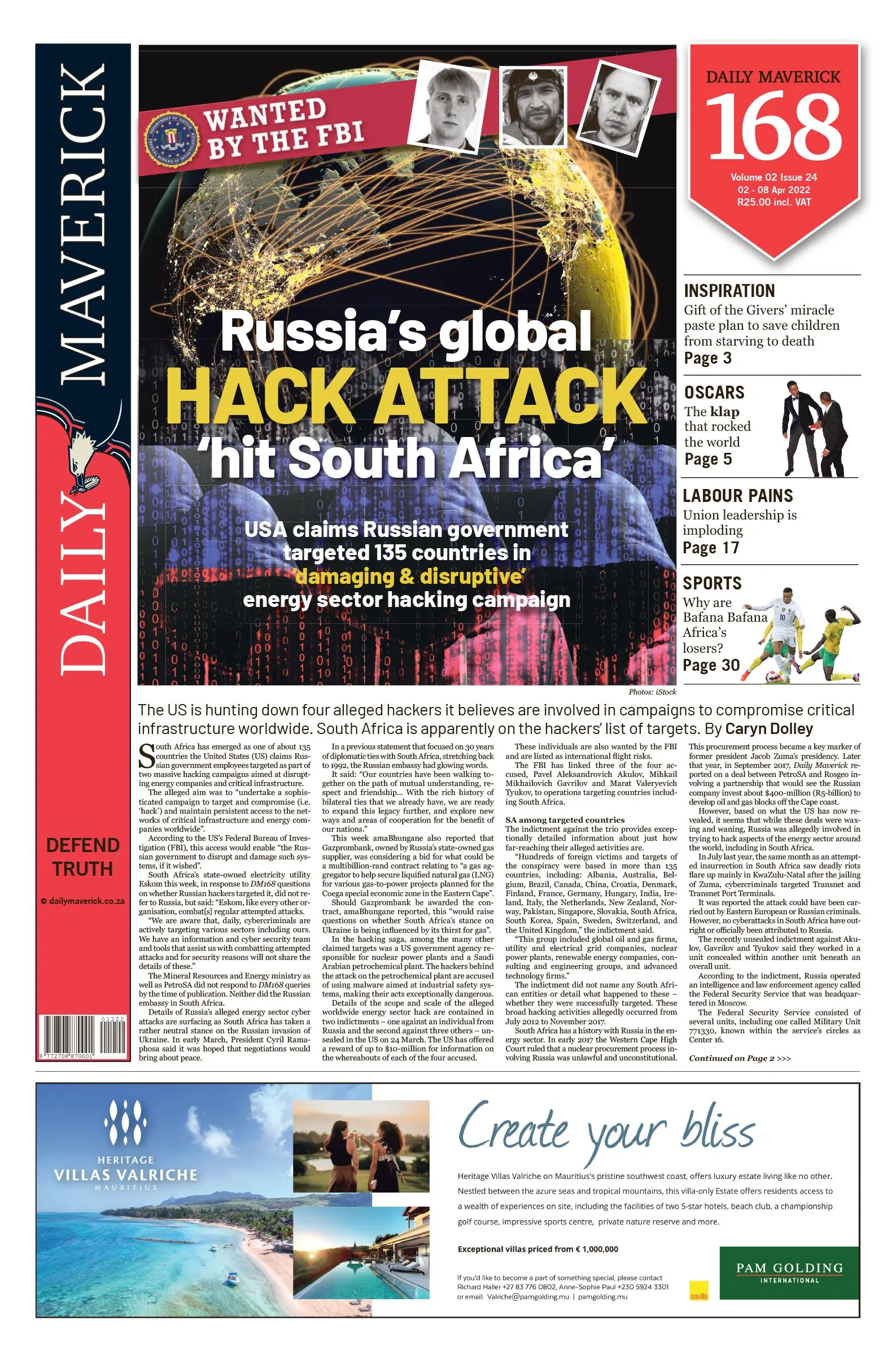Believe it or not, the country’s markets generally have not only held steady but have in some cases actually strengthened. What on earth is going on here?
The rand started strengthening against the dollar in December and just calmly carried on that path following the start of the war in Ukraine in late February. The day when a dollar would cost you R19 at the start of the Covid-19 crisis in early 2020 seems like a faraway land now. The rand is now trading, more or less, at the same level it was before the Covid crisis.
Other indices look comparatively strong too; the JSE, which saw off the Covid-19 crisis with great aplomb, is now almost double its value since then, and it has also held up through the start of the Ukraine war. The really weird eye-opener is that SA’s inflation rate which, while rising, is now lower than that in the US – something that has not happened in living memory.
You could almost take any crisis at random, but the number of times South Africa’s markets have escaped a global crisis can be counted on the fingers of one hand. So, why is it that it seems to be escaping the scythe this time?
The truth is I don’t know, but I happened to be interviewing Michael Bolliger, head of emerging markets at Swiss banking behemoth UBS, during the week and took the opportunity to lay the question on him. As always, the answer is complex, uncertain and multifaceted.
Internationally, says Bolliger, an unusual divide is developing between emerging market countries: one group has been hit hard by the Ukraine crisis, like Egypt and Turkey, while for another set of emerging market countries the conflict constitutes something of a tailwind.
Russia is well known for its energy resources; it’s less well known but also an important player in PGMs, base metals and some agricultural products, notably potash. Many of these products are substitutable by those that South Africa produces.
South Africa just happens to tick many boxes, Bolliger says. For example, its thermal coal is compatible with European coal power stations, of which there are still plenty, and could substitute for Russian gas.
Consequently, the Ukraine conflict is something of a window of opportunity for South Africa, he said. There is a separate discussion to be had about whether the country has the infrastructure, notably the railway and ports, to take full advantage of this tailwind. But, for the time being, demand will remain strong.
He warns, however, that the tailwind might not last long, and the danger will come from a completely different location: the US. It’s clear now that the US Fed will raise interest rates at every meeting this year.
For South Africa, the consequence is the interest rate differential closing, and that could mean the rand will soften in about 12 months or so. And there is always the danger that these interest rate increases will tip the US and then, more than likely, the world into a recession.
“You will hear a lot of talk about a soft economic landing, but history tells us the chances are there will be a quarter or two of economic contraction.”
Much of this depends on how the war in Ukraine ends, and that of course we don’t know. There are (at least) four scenarios: The sides come to an uncomfortable agreement in which Russia withdraws and Ukraine remains neutral; Russia wins and occupies Ukraine; Ukraine resists successfully and Russia withdraws without agreement; Russian president Vladimir Putin is overthrown.
Although Ukraine is holding out with heroic and unexpected success at the moment, it should be noted that Russia has weapons it hasn’t used yet. Those counting on a Ukrainian victory should probably temper their cheering.
But, for South Africa, the point is that any of the scenarios will probably lead to a frozen conflict and, in that case, the tailwinds will continue.
Which means it really is time for the government in general and Transnet in particular to step up to the plate. DM168
This story first appeared in our weekly Daily Maverick 168 newspaper which is available for R25 at Pick n Pay, Exclusive Books and airport bookstores. For your nearest stockist, please click here.

















 Become an Insider
Become an Insider
Comments - Please login in order to comment.